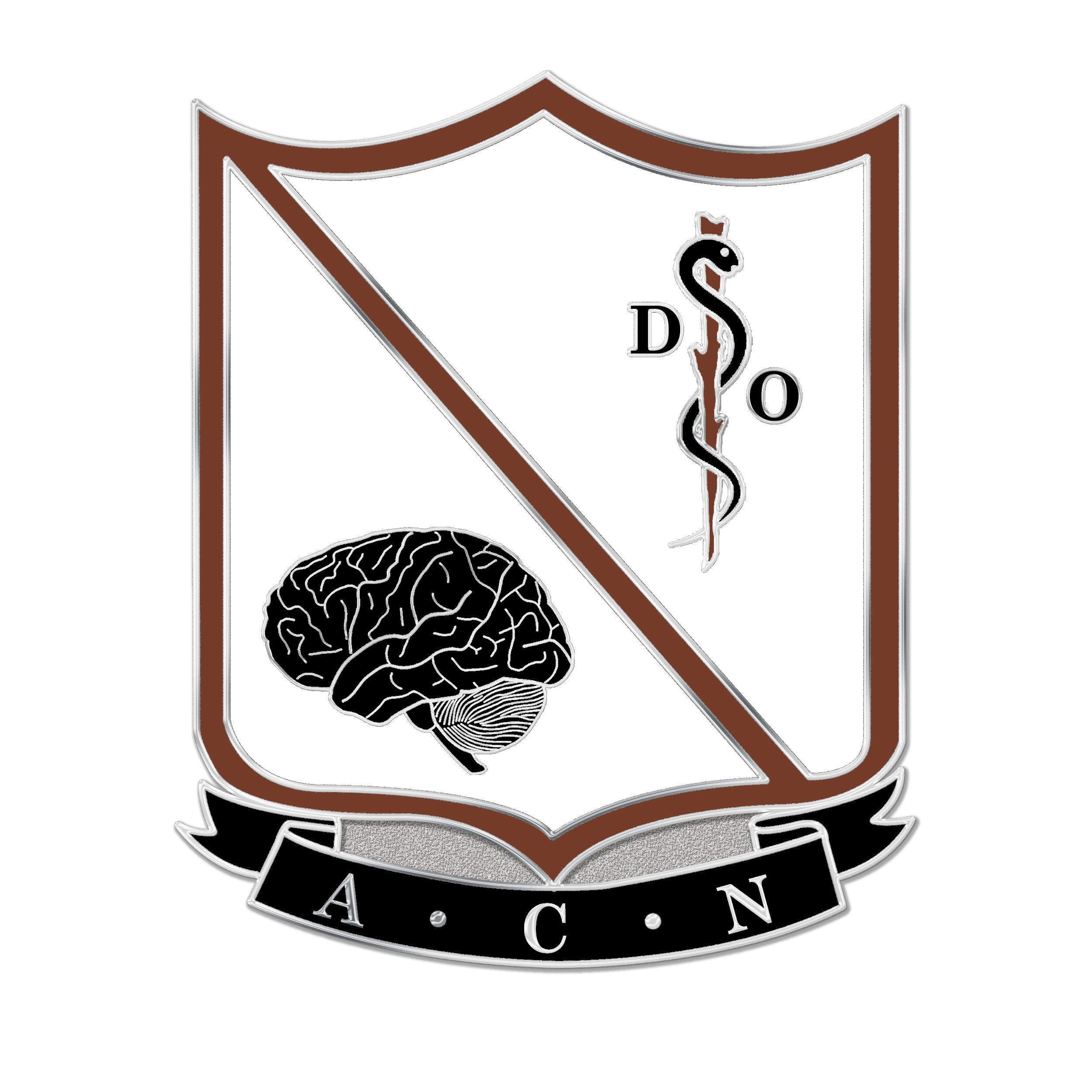The American College of Neuropsychiatrists
(An Osteopathic Institution)
By Floyd E. Dunn, D.O., F.A.C.N., F.A.A.M.D.
“In the field of Graduate Training we are planning the following program:
1. The creation of a Fellowship in Neuropsychiatry for the first year of Post-graduate Training. At the end of the first year, if he has fulfilled the requirements of the fellowship and receives approval of the Department he becomes eligible for Junior Residency.
2. The creation of a Junior Residency in Neurology or Psychiatry (as the graduate student elects and with the approval of the Department) which will continue training in the specialty self selected, with the object of qualifying the trainee for a third year of residency and eventual qualification for certification.
3. The creation of a Senior Residency in Neurology of Psychiatry (conditions as above) during which the graduate student will complete his specialty training and become eligible for examination for certification in his chosen specialty.”
With the completion of this reorganization, it will provide training in neurology and psychiatry which will compare favorably with that afforded by some of the best medical schools. The idea of a neuropsychiatric externship is somewhat on the experimental side but has been successfully tried, I believe, in one or two medical schools.”
This was the first time that osteopathic students anywhere had been given an opportunity to study and work with in-patients in a Psychiatric Hospital. And by the following year, Medical Psychology had been added to the curriculum, so that the Kirksville College of Osteopathic Medicine was the first osteopathic college to teach a course under the Department of Neurology & Psychiatry in each of the four years of the curriculum. I am certain that it was the success of these teaching innovations that led to my being honored so relatively early with the Degree, “Fellow,” by the American College of Neuropsychiatrists.
The October 1946 issue of the Bulletin also carried an editorial by Thomas J. Meyers, D.O. F.A.C.N., which is reproduced below. Note that “Tommy” wrote of ‘future Fellows’ and the importance of keeping them free from criticism. He wrote of the ‘prejudice’ against psychiatry, and of the need for ‘mastery of self beyond that of any (other) channel of human behavior’. He wrote of the need for every prospective psychiatrist to have a personal analysis ‘or at least have his personality thoroughly inventoried’. And lastly he wrote that the responsibility of this ‘teaching program rests upon the shoulders of the Fellows of this College. It is a matter of personal efficiency to see that it is well handled and to demand that poor training be corrected’.
